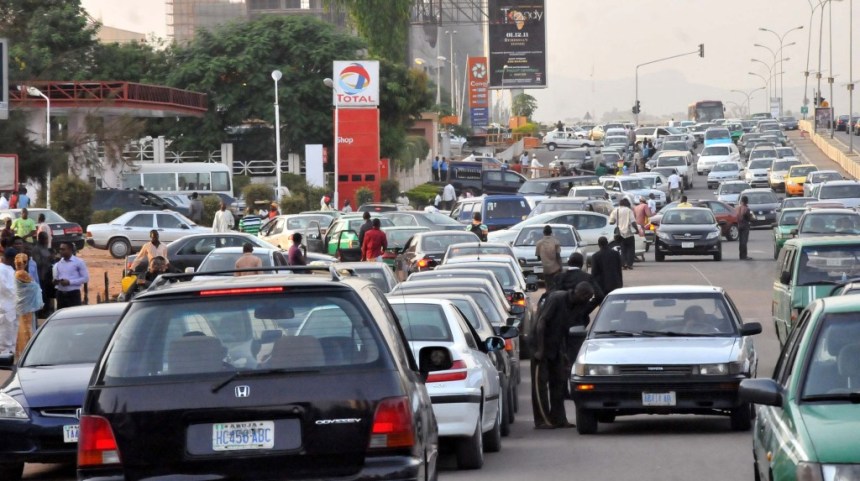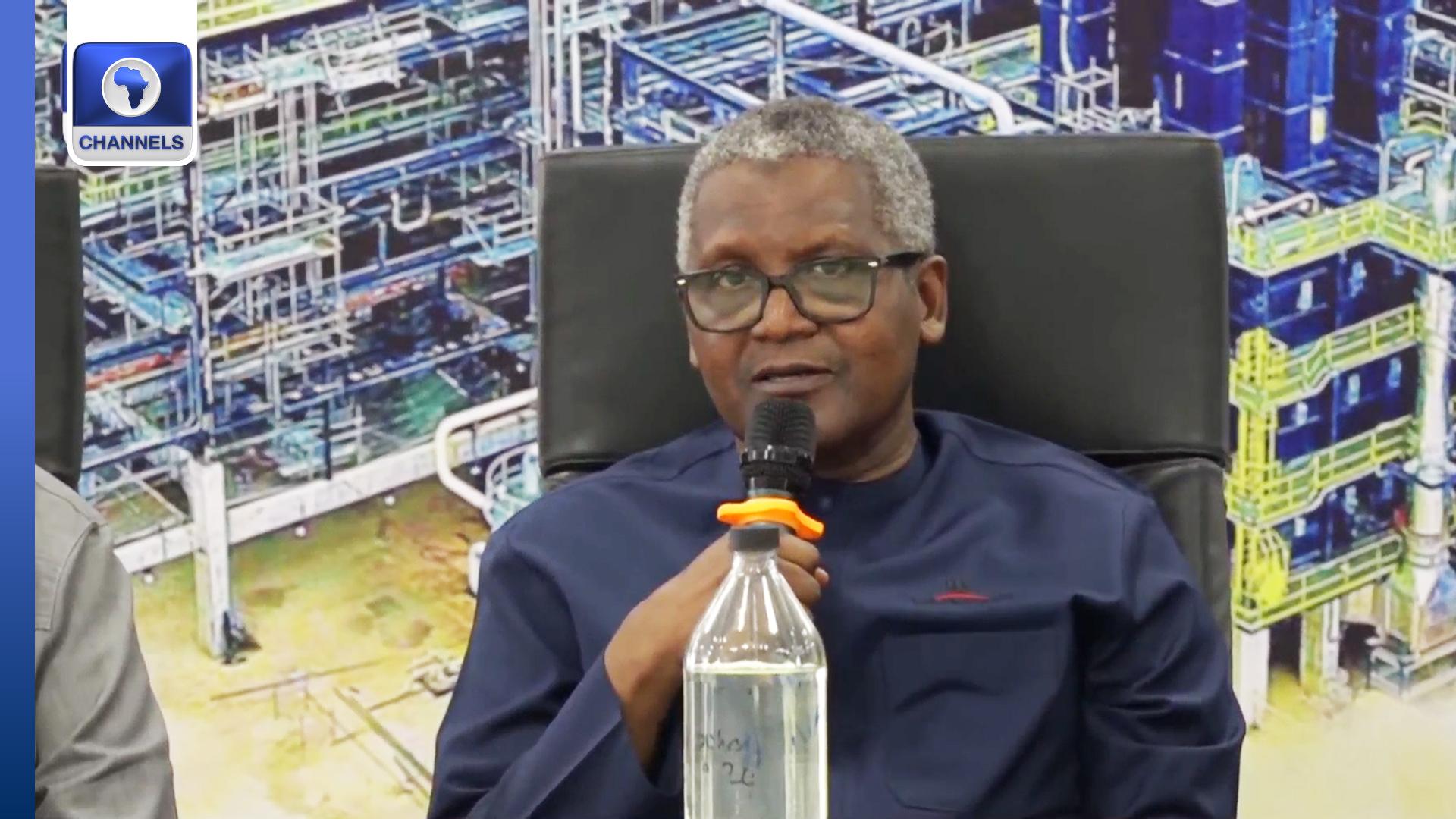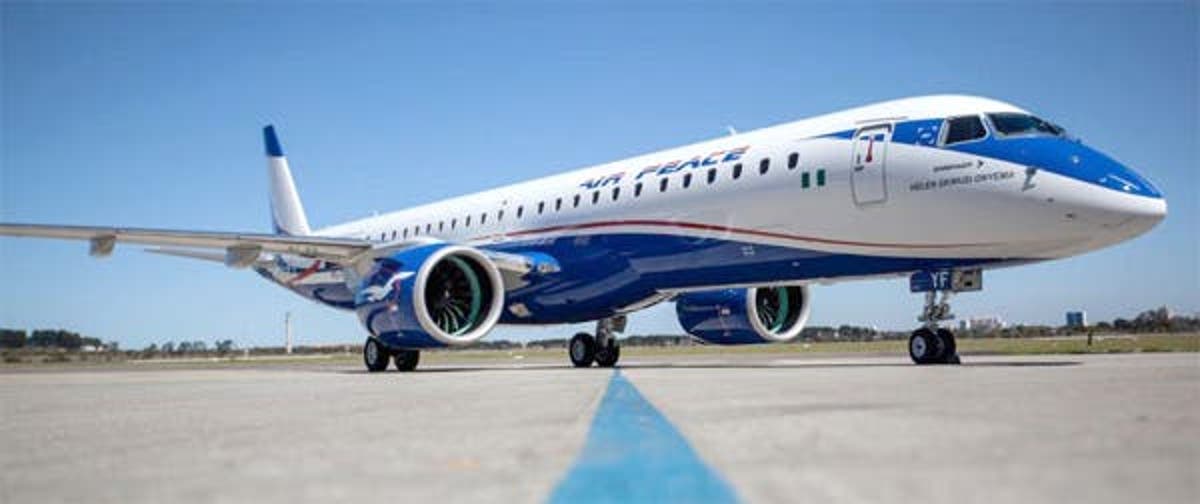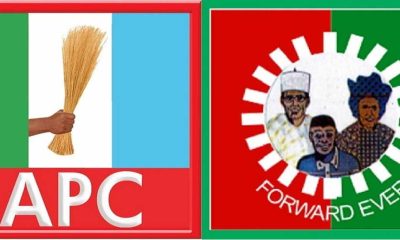Business
Fuel scarcity worsens in Lagos, Abuja, others as hawkers sell 1,500/litre

Fuel scarcity worsens in Lagos, Abuja, others as hawkers sell 1,500/litre
Queues for petrol have become longer at few filling stations in Lagos, Abuja and some major cities where the product is available to dispense.
Many have had to travel long distances to buy the commodity as most filling stations are not open for operation claiming that they have run out of petrol.
A report by The Punch on Monday stated that many depots for premium motor spirit (petrol) are currently dry.
Indeed, it reported that there was loading of fuel trucks in the Apapa depots as of Sunday.
It quoted a depot operator as saying that there was no fuel in almost all the depots on Sunday after the little available was supplied on Saturday.
Many motorists and those in need of petrol for their vehicles and power generators for electricity have had to resort to buying from the black market and hawkers vending the product along the road.
They sell petrol between N1,300 and N1,500.
On Sunday, from Iyana-Ipaja to Oshodi, only one filling station (Conoil at Airport junction) was open to sell fuel. And this was only in the night.
According to The Punch report, on Sunday in Abuja, while the few filling stations that dispensed the product sold it at between N660/litre and N800/litre, black marketers took advantage of the scarcity to hike the price to about N1,200/litre, depending on the area of purchase.
This came as oil marketers revealed that they were also queuing up to load petrol, adding that most depots lacked stock to sell.
“We, marketers, too are surprised that we couldn’t get fuel as we used to get at depots. We were worried too; we didn’t know the cause until the NNPC came out with a release on Saturday. Let’s just believe what the NNPC said, that they would arrest the situation,” the National Vice President of the Independent Petroleum Marketers Association of Nigeria, Hammed Fashola.
READ ALSO:
- Adhere to established regulations in petroleum industry, Arewa youths slam Dangote
- Hardship: Verydarkman in one-man Abuja street protest, Singer Portable tackles him
- Thousands mourn children killed in Golan Heights strike
“I believe that within this week, everything will be normalised by the time they push products to the depots for marketers to pick from. Ours is to pick from the depots, take it into our stations, and dispense to the public. But for now, most of the depots are dry. The implication of that is that the stations will be dry too. Most of our members have run out of stock. That is the cause of the queues we are experiencing now,” Fashola added.
He noted that marketers were still buying PMS “at a price that is above N700/litre from the private depots.”
“We are not yet getting direct supply from the NNPC as we are supposed to. What we are getting is so small compared to our population. That is why we are forced to go to the third parties, the private depot owners, and they are not helping matters with the kind of price they are putting out there.
“That is why independent marketers sell around N800 or so. Until we address this issue of direct supply, there will be issues. We keep shouting to the NNPC to look at that area properly because something is fundamentally wrong with our distribution channel and until they correct that, we will continue to have this issue of fuel scarcity.”
Executive Secretary of the Major Energies Marketers Association of Nigeria, Clement Isong, also said there had been low stock but could not tell when the situation would improve.
“The problem is that the stock is low because there have been some challenges in bringing the product into the country from the vessels. We are all queuing up for products, everybody is looking for the product from the NNPC. Only the NNPC knows when normalcy will be restored. It is the sole supplier,” he said.
NNPCL speaks
The Nigerian National Petroleum Company Limited (NNPC Ltd.) has explained that the fuel supply and distribution problem was caused by a hitch in the discharge operations of a couple of vessels.
Olufemi Soneye, the chief corporate communications officer, NNPC Ltd., made this known on Saturday in a statement while reacting to the current queues and scarcity being witnessed in Lagos and the Federal Capital Territory.
“The NNPC Ltd. wishes to state that the tightness in fuel supply and distribution witnessed in some parts of Lagos and the FCT is as a result of a hitch in the discharge operations of a couple of vessels,” Mr Soneye said.
Fuel scarcity worsens in Lagos, Abuja, others as hawkers sell 1,500/litre
Business
I’m honoured, excited over World Bank’s appointment – Dangote

I’m honoured, excited over World Bank’s appointment – Dangote
President and CEO of Dangote Group, Aliko Dangote, has expressed gratitude following his appointment to the World Bank’s Private Sector Investment Lab, a global initiative aimed at accelerating private investment and job creation in emerging economies.
In a statement confirming the development, Dangote described the appointment as both an honour and a reflection of his long-standing commitment to economic development through private enterprise.
“I am both honoured and excited to accept my appointment to the World Bank’s Private Sector Investment Lab, dedicated to advancing investment and employment in emerging economies,” Dangote said.
“This opportunity aligns with my long-standing commitment to sustainable development and unlocking the potential of developing economies.”
He referenced the successes of the so-called Asian Tigers, economies that experienced rapid growth through strategic investment, as a source of inspiration for advancing similar outcomes in other parts of the world.
The World Bank announced Dangote’s inclusion on Wednesday as part of a broader expansion of the Lab, which enters a new phase focused on scaling up solutions that attract private capital and generate employment in developing countries.
Other newly appointed members include Bill Anderson, CEO of Bayer AG; Sunil Bharti Mittal, Chairman of Bharti Enterprises; and Mark Hoplamazian, President and CEO of Hyatt Hotels Corporation.
READ ALSO:
- Akpabio to represent Tinubu at Pope Francis funeral
- PDP will come out stronger, Saraki reacts to Okowa, Delta gov defection
- Countries eligible to enter US without visas for 90days (full list)
World Bank Group President Ajay Banga noted that the expanded membership underscores the institution’s focus on integrating private-sector leadership into its strategy for global job creation.
“With the expanded membership, we are mainstreaming this work across our operations and tying it directly to the jobs agenda that is driving our strategy,” Banga said.
“This isn’t about altruism—it’s about helping the private sector see a path to investments that will deliver returns, and lift people and economies alike. It’s central to our mandate.”
The lab, which was co-chaired in 2023 by Canadian Prime Minister Mark Carney, previously sought to mobilise £1 trillion in sustainable investment, particularly targeting energy transition projects in emerging markets.
Aviation
Air Peace suspends flights nationwide over NiMet strike

Air Peace suspends flights nationwide over NiMet strike
Air Peace has suspended all its flight operations across the country due to the ongoing strike by the Nigerian Meteorological Agency (NiMet).
The airline said in a statement on Wednesday that it was also suspending operations due to the unavailability of QNH (hazardous weather) reports required for safe landings.
“Due to the ongoing NiMet strike and the unavailability of QNH (hazardous weather) reports required for safe landings, Air Peace has suspended all flight operations nationwide until the strike is over,” Air Peace said.
“Your safety is our top priority. We appreciate your understanding and will share updates as the situation unfolds.”
The airline had earlier announced that the NiMet strike could lead to flight delays and cancellations across its network.
Air Peace added that it was monitoring the situation and working with relevant stakeholders to minimise the impact on customers’ travel plans.
Employees of NiMet commenced a nationwide indefinite strike over welfare issues on Wednesday.
Some of the issues raised involve “NiMet’s refusal to negotiate or implement agreed financial allowances and unresolved entitlements,” including wage awards, peculiar allowances, and outstanding payments from the 2019 minimum wage.
They also accused the management of the agency of withholding important documents, ignoring requests for inclusion of omitted staff in past payments, and neglecting key training programmes in favour of executive retreats.
Business
Nigeria’s gas production increases by 15.6% to 227,931.65 mscf

Nigeria’s gas production increases by 15.6% to 227,931.65 mscf
Nigeria’s gas output has increased 15,6 percent month-on-month, MoM, to 227,931.65 million standard cubic feet, mscf, in March 2025.
But on year-on-year, YoY basis, the nation’s gas output recorded a marginal increase to 227,931.65 mscf in March 2025, from 198,353.62 mscf, recorded in the corresponding period of 2024.
Data obtained from the Nigerian Upstream Petroleum Regulatory Commission, NUPRC, Gas Production Status reports indicated that of the total of 227,931.65 mscf produced in March 2025, 119,552.75 mscf was associated while 108,378.90 mscf was non-associated gas.
Associated gas is extracted in the process of producing crude oil while non-associated gas is produced without crude oil after much investment, exploration and development.
The Ministry of Petroleum Resources (Gas), which is directly involved in the development of policies, targeted at increasing investment in the sector said efforts have been made to increase investment and production of gas in Nigeria.
Similarly, in its recent report obtained by Vanguard, the Nigerian LNG Limited stated: “We are fully committed to expanding our operations with the NLNG Train 7 Project, which will boost our production capacity by 35%, increasing from 22 Million Tonnes Per Annum (mtpa) to 30 mtpa. This project underscores our role as a key player in the global LNG market and positions Nigeria as a top-tier supplier of LNG, leveraging its vast proven gas reserves of 202 trillion cubic feet (the 9th largest globally).
Vanguard
-

 metro5 hours ago
metro5 hours agoTruck falls from Lagos bridge on two buses
-

 metro2 days ago
metro2 days agoOmokri : How Tinubu’s political mastery started with Abiola, says El-Rufai, Obi’s forces can’t stop him
-

 Education1 day ago
Education1 day agoJAMB officials seize candidates’ hijab at Caleb varsity, Muslim students kick
-

 Entertainment3 days ago
Entertainment3 days agoP-Square: Jude Okoye freed after two months detention
-

 International1 day ago
International1 day agoUS releases 41 countries granted 90-day entry without visas (full list)
-

 Politics3 days ago
Politics3 days agoLabour Party collapses into APC in Plateau
-

 metro2 days ago
metro2 days agoGroom cancels wedding, marries another lady same date, venue
-

 metro15 hours ago
metro15 hours agoEFCC declares four persons wanted over CBEX scam









